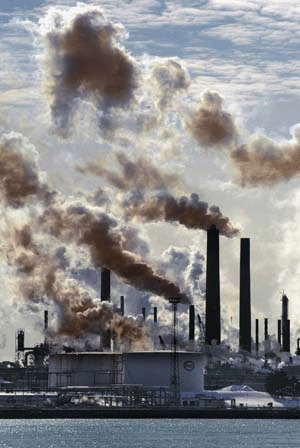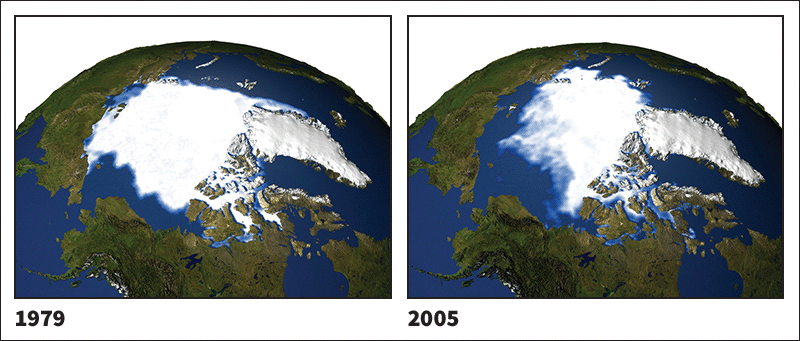Scientists Declare Global Warming “Unequivocal”
Friday, September 27th, 2013September 27, 2013
Scientists are 95 percent certain that humans are the “dominant cause” of global warming, the authors of a landmark report from the Intergovernmental Panel on Climate Change (IPCC) announced today. The authors of the report stated emphatically that global warming is “unequivocal” on the ground, in the air, and in the oceans; and that since the 1950′s, many of the observed changes in the climate system are “unprecedented over decades to millennia.”

The glacier Qori Kalis in the Andes Mountains in Peru melted substantially between 1983 and 2000. According to scientists at the Byrd Polar Research Center of Ohio State University, this melting provides a clear sign of global warming (© Lonnie G. Thompson, Byrd Polar Research Center, Ohio State University).
IPCC Co-chair Qin Dahe wrote, “Our assessment of the science finds that the atmosphere and ocean have warmed, the amount of snow and ice has diminished, the global mean sea level has risen and that concentrations of greenhouse gases have increased.” Speaking today at a news conference in Stockholm, Co-chair Thomas Stocker declared that climate change “challenges the two primary resources of humans and ecosystems, land and water. In short, it threatens our planet, our only home.” Both scientists contend that since 1950, humans are clearly responsible for more than half of the observed increase in temperatures through the burning of fossil fuels.
The IPCC report downplayed a so-called pause in the increase in temperatures in the period since 1998. The authors pointed out that this period began with a very hot El Nino year: “Trends based on short records are very sensitive to the beginning and end dates and do not in general reflect long-term climate trends.”
The authors of the report warned that continued emissions of greenhouse gases at current levels would trigger further warming and changes to all aspects of the world’s climate system. They predict that continued emissions of greenhouse gases at current levels could result in sea levels rising by the end of this century by 10 inches (26 centimeters) at the low end and 32 inches (82 centimeters) at the high end. They conclude that to halt or even forestall these changes will require “substantial and sustained reductions of greenhouse gas emissions.”
Additional World Book articles:
- The Great Meltdown (a special report)
- Methane (a special report)
- Meltdown: Climate Change in the Arctic (a special report)
- Probing the History of Climate Change (a special report)
- What We Know About Climate Change (a special report)





